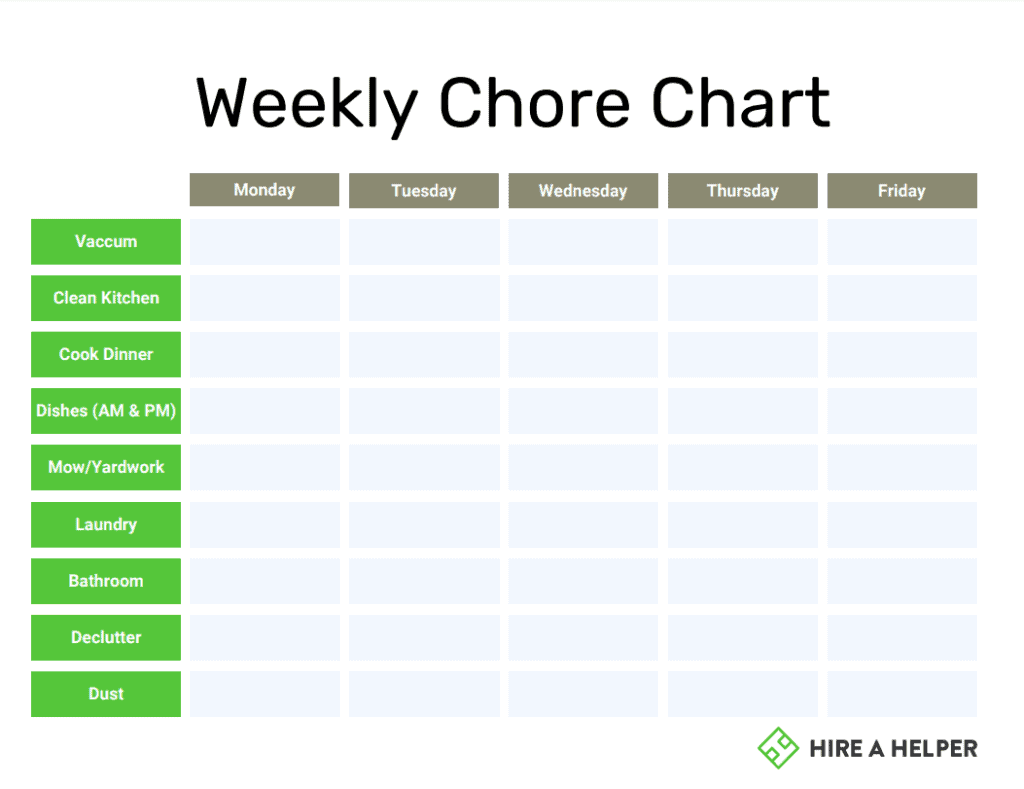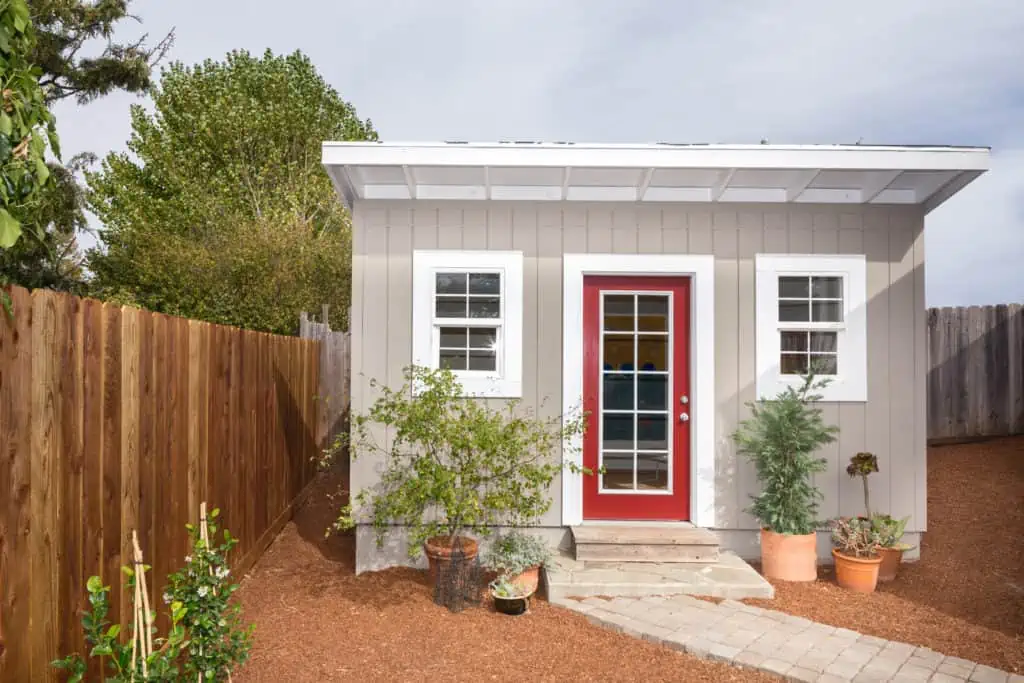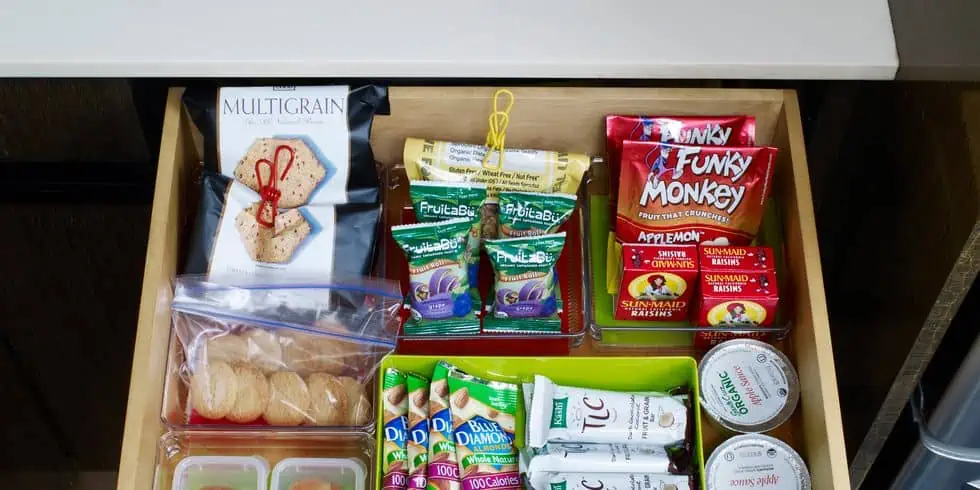Living with a roommate definitely has its perks. One study by SmartAsset found that living with a roommate saves renters an average of $517 a month. Considering the tough financial times we live in, that probably means you’re likely to be living the roommate life.
But moving in with another person isn’t all sunshine and rainbows. There are also plenty of challenges and responsibilities that require communication, compromise, and respect from both parties. It doesn’t matter if you’re planning to move in with a friend, significant other, or even a stranger you met online… here’s how to do it right.
Don’t move in before doing your due diligence
Regardless of whether you found your person through your own network, a friend, or even Facebook, be sure you do your due diligence to check their background before you move in.
Step one in moving in with a roommate is, well, finding that roommate. Some people already have a person in mind, such as a good friend. However, if you’re looking for a roommate with the goal of saving money, it’s important to take your time finding the right person.
“While many college students prefer to use Facebook groups or room with friends, other people like to reach out to their inner circle on social media to ask if anyone’s looking for a roommate,” says Raquel Kehler of the home styling blog RoomCrush.
“If you don’t know them, offer to meet up for a coffee and a chat. This will help you get to know the person and see if their living preferences (like sleeping patterns, lifestyle, and cleanliness) will match yours.”
Safety is important. If you think you’ve met “the one,” do some homework and make sure there are no red flags. Ask for and call references, such as previous roommates, employers, or professors. A site like BeenVerified allows you to run a basic background check for a modest fee and find out if that person has a criminal record. You can never be too careful.
Plan to downsize before the move
Chances are you own more stuff than you need. You really don’t want to start arguing about space right off the bat.
- Make a list of what you both have: Many organization projects start with creating a list and this one is no different. Sit down with your new roomie and make a list of all of the things you each have. Do they have a microwave? Do you also have a microwave?
- Narrow it down: Now that you’ve got the list of everything you both own right in front of you, it’s time to start downsizing. This may simply be a game of “whose item is nicer/in better condition?” It may be hard to be objective during this time, but do your best.
- Get rid of extra stuff: Before moving day arrives, be sure to donate all of those items you both agreed to ditch. You can check out this list of donation centers if you need some guidance.
- Remember that compromise is key: Be willing to let go of some of your possessions in order to make your roommate happy. Hopefully, they’ll do the same.
Not only is this whole process a pragmatic thing to do, but hopefully it can be a bonding experience too.
Set the house budget and divide the bill responsibilities
One of the most sensitive topics among roommates tends to be money. You both have a lot of expenses, many of them shared, including rent, cleaning supplies, toilet paper, and more. So who pays for what – and how?
Trust me… decide ahead of time who will own which bills, or if one person will pay them all.
“…living with a roommate saves renters an average of $517 a month.”
A common approach is doing stuff 50/50, but it’s not always the best way to go about it (more on that in a sec). Using apps such as Splittr and OurGroceries can help you easily split your bills according to whatever proportion you decide.
You’ll also need to determine how the bills will be paid. For example,
- One person pays for everything while the other sends their share of the bills via cash or Venmo/wire each month
- You all divvy up the bills and each takes responsibility for paying some
There’s honestly no “correct” way to do it – as long as you do it!
See prices for movers by the hour—instantly.
Read real customer reviews.
Easily book your help online.
What bills should really be 50-50?
Talk stuff out as honestly as you can before anyone is upset, as emotions can run high if you feel like you get the short end of the stick three months down the line.
“Be honest! You can put whatever you want in your roommate agreement (as long as you both do, in fact, agree to the rules).”
“While bills are often 50/50 as a rule of thumb, this also depends on room sizes and how each person uses the utilities,” Kehler says. For example, if both of you use the TV but only one of you watches shows on Hulu, it wouldn’t make sense for you to split the streaming services down the middle.
“Another example is that back in college, my friend had three roommates in medical school, and they all shared the upper floor of a house, Kehler explained. “While they split the energy and utility bills 50/50, the rents were proportional to the size of the room so the roommate with the biggest room paid the highest rent.”
Have the cleaning talk before things get messy
Now that you have finances out of the way, your next biggest task is to divvy up the household chores.
The goal is to come up with a list of responsibilities and a schedule that feels fair. If one person is stuck constantly cleaning up after the other, resentment will build and arguments will undoubtedly arise.
The most common way to sort this out is by creating a chore calendar that clearly states which roommate does what and when. Hang a whiteboard or calendar somewhere in your apartment that’s hard to miss, such as the kitchen. Visual checklists can also help you hold each other accountable.
[CLICK HERE FOR OUR FREE PRINTABLE CHORE CHART]
Also, be sure to outline any special rules you come up with in your roommate agreement (we’ll get to that in the next section). “You both might have differing ideas about cleanliness and what constitutes the chore being finished,” Kehler notes. “Have a short meeting where you get clear on each other’s expectations and what you will do if either of you has to miss a day.”
Go over special agreements before you move in

Setting ground rules for your shared space is important.
Some examples:
- How do you each handle significant others or overnight guests?
- Is there a limit on the number of times non-tenants can stay in the apartment?
- Who gets to decide what to watch in a shared space, and when is it the other person’s turn to pick something?
Think about the types of conflicts that may come up and try to settle on a resolution ahead of time. Bringing up these issues and making the rules up on the fly could feel like a personal attack.
See prices for movers by the hour – instantly.
Read real customer reviews.
Easily book your help online.
“If you don’t know the person well or have any concerns at all, then put a formal agreement together,” Kehler suggests. “Even friends who become business partners draft formal agreements because they never know what conflicts may arise, and the same holds true for roommates.” You also want to make sure you’re legally covered, especially in cases of damages or someone moving out early and leaving you with all the rent, she added.
Be honest! You can put whatever you want in your roommate agreement (as long as you both do, in fact, agree to the rules). In addition to general house rules, a roommate agreement can also cover:
- Quiet hours, especially if one of you works early or needs study time.
- Use of common spaces, including when and what is expected in terms of keeping common spaces tidy.
- Splitting up expenses and chores, “the official roommate agreement” is a perfect place for writing the financials out.
Roommates who plan the process for future conflicts are more successful
In addition to setting ground rules, it’s important to discuss how you’ll handle (and resolve!) conflicts. Yes, the key is to make a process ahead of time, before you’re in the heat of the moment.
A conflict resolution agreement can spell out things such as:
- How problems will be discussed, such as face-to-face, over text, or even a shared online space
- Communicate areas in your life you will always prioritize, like a family issue, or a mental health issue
- How to make progress if you were to both hit a wall (maybe you both are close to a neutral third party you might mentally assign to be a potential source of help)
Having a process to follow when you disagree will lead to more productive discussions.
Tips for Literally Living With a Roommate
Now that you have the basics down, here are a few more tips to keep in mind so that living with a roommate goes smoothly.
- Preserve personal space. Ideally, you and your roomie get along well. Maybe you even enjoy watching TV and going out for happy hour together. Still, it’s important to remember that your roommate isn’t obligated to hang out with you. So respect each other’s need for personal space and alone time.
- Get creative with storage. Sometimes, downsizing isn’t enough, especially if you live in a smaller apartment or one with limited storage. So look into creative solutions that allow you to keep your prized belongings without cluttering up your space (and causing arguments). “These include getting storage bins that go under your bed, folding clothes so they fit into drawers more efficiently (we love the Marie Kondo method), and getting furniture that doubles as storage, such as a storage ottoman,” Kehler says.
- Talk to your roommate before decorating. Everyone has their own personal style, and you probably want your living space to reflect yours. However, you should check in with your roommate before hanging a painting or adding a new end table to the living room. For one, their taste may not jive with yours, so it can be irritating to come home to clashing decor. Plus, certain decorations can cause damage to an apartment (like nail holes) that may end up costing both of you when it’s time to get that security deposit back. It’s better to confirm whether your roommate is into a certain piece of home decor before you spend the money on it.
Remember that nobody is a mind reader. Living with another person means some conflicts are bound to come up. But if you don’t share what’s bothering you, the other person may not realize that their behavior or habits are a problem. Whether it’s leaving dirty dishes left in the sink or eating your leftovers, if you’re irritated by your roommate’s behavior, you can’t assume they’re doing it knowingly unless you’ve talked about it!





























